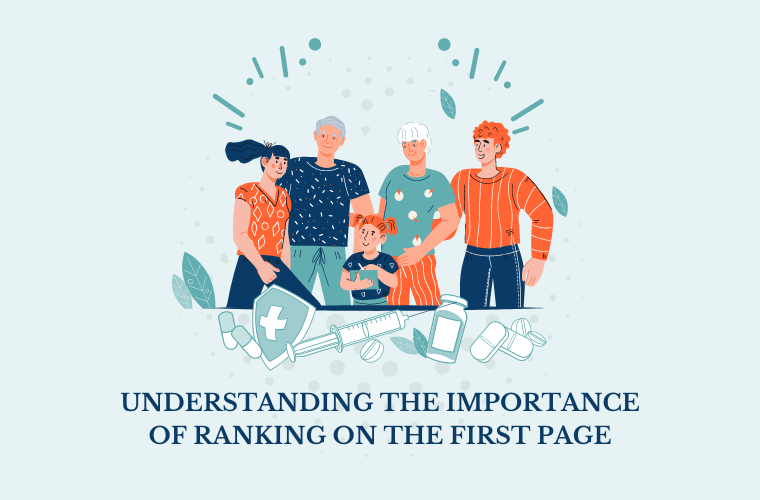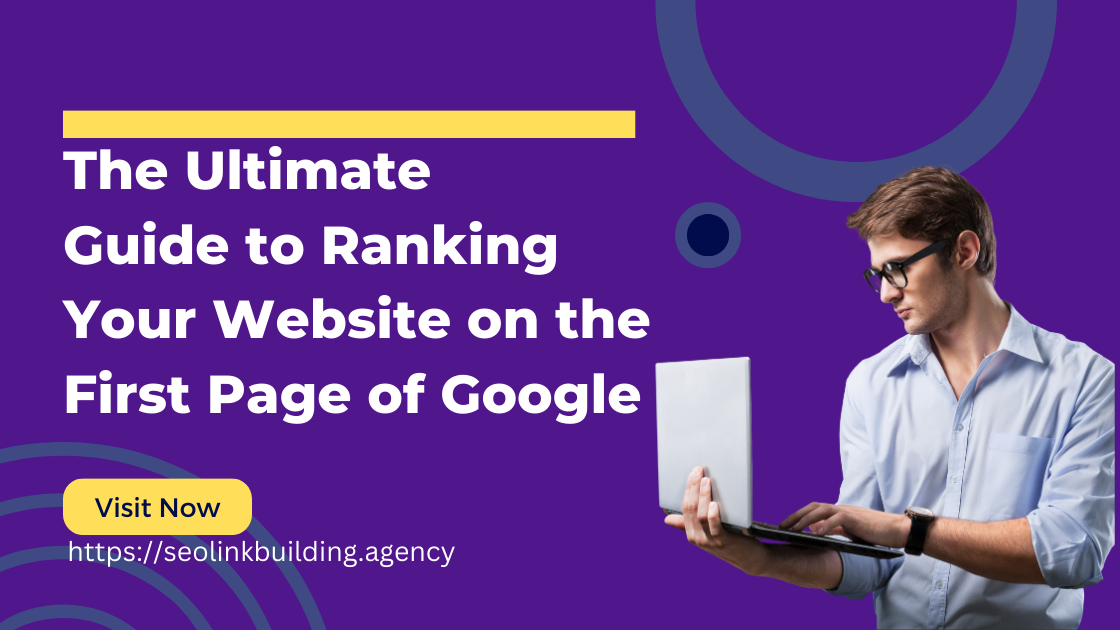The Ultimate Guide to Ranking Your Website on the First Page of Google
In today’s digital age, having a strong online presence is crucial for the success of any business. One of the key factors in establishing that presence is ranking your website on the first page of Google search results. Being on the first page ensures higher visibility, organic traffic, and ultimately, more conversions. However, achieving this feat requires a well-planned and strategic approach. In this comprehensive guide, we will walk you through the process of ranking your website on the first page of Google.
Understanding the Importance of Ranking on the First Page

To grasp the significance of ranking on the first page, it is essential to understand user behavior. Studies have shown that users rarely venture beyond the first page of search results. In fact, the top three organic search results receive over 60% of all clicks. By ranking on the first page, you position your website as a credible and authoritative source, leading to increased trust and visibility.
Conducting Keyword Research
Keyword research is the foundation of any successful SEO campaign. It involves identifying the keywords and phrases that potential customers are using to search for products or services in your industry. Tools like Google Keyword Planner, SEMrush, and Moz Keyword Explorer can help you discover relevant keywords with high search volumes and low competition. By strategically integrating these keywords into your website’s content, you can improve your chances of ranking higher in search results.
Optimizing On-Page Elements
On-page optimization refers to optimizing various elements within your website to make it more appealing to search engines. Key elements to focus on include:
Title Tags and Meta Descriptions: Craft compelling and keyword-rich titles and meta descriptions that accurately describe your content while enticing users to click.
URL Structure: Ensure that your URLs are concise, descriptive, and contain relevant keywords. A well-structured URL helps search engines understand the content of your page and improves user experience.
Heading Tags (H1, H2, H3): Proper utilization of heading tags not only helps search engines understand the hierarchy and structure of your content but also enhances readability for users. Include relevant keywords in your headings to further optimize your web pages.
Image Optimization: Optimizing images is often overlooked but can significantly impact your website’s ranking. Compress images for faster loading times, add alt text with relevant keywords, and ensure they are properly named for better search engine visibility.
Internal Linking: Internal linking helps search engines navigate through your website more effectively while distributing link authority. Strategically link related pages using descriptive anchor text to improve user experience and increase the visibility of important pages.
Creating High-Quality and Engaging Content
Content is king when it comes to SEO. Google values websites that provide valuable and relevant content to users. Here are some tips for creating high-quality content:
Understand Your Target Audience: Identify your target audience’s needs, pain points, and interests. This will enable you to create content that resonates with them and establishes you as an authority in your niche.
Incorporate Relevant Keywords: Integrate your target keywords naturally into your content without overstuffing. Focus on creating informative and engaging content that provides value to readers.
Length and Depth of Content: Long-form content tends to perform better in search engine rankings. Aim for comprehensive and well-researched articles that cover a topic in-depth, providing valuable insights to readers.
Regularly Update Your Content: Google rewards websites that consistently update their content with fresh information. Keep your content up-to-date by revisiting and enhancing existing articles with new data or insights.
Utilize Different Media Formats: Diversify your content by incorporating different media formats such as infographics, videos, or podcasts. This not only enhances the user experience but also increases the likelihood of attracting backlinks.
Building High-Quality Backlinks
Backlinks play a crucial role in determining the authority and credibility of your website. However, it’s essential to focus on quality over quantity when building backlinks:

Guest Blogging: Guest blogging allows you to reach new audiences while acquiring authoritative backlinks. Identify reputable websites in your niche that accept guest posts and contribute valuable content that includes a link back to your website.
Influencer Outreach: Collaborate with influencers or industry experts who have a significant following in your niche. Their endorsement can attract high-quality backlinks and increase brand visibility.
Content Promotion: Promote your content through various channels such as social media platforms, forums, and online communities. By increasing its visibility, you enhance the chances of others linking back to your content.
Broken Link Building: Identify broken links on reputable websites within your industry and offer them a suitable replacement from your own website. This mutually beneficial strategy allows you to acquire authoritative backlinks while helping webmasters fix broken links.
Monitor Your Backlink Profile: Regularly monitor your backlink profile using tools like Ahrefs or Moz to identify any low-quality or toxic backlinks that may harm your website’s ranking. Disavow such links to maintain a healthy backlink profile.
Conclusion
Ranking your website on the first page of Google requires a combination of technical expertise, strategic planning, and consistent effort. By implementing the techniques outlined in this guide – from conducting keyword research to building high-quality backlinks – you can significantly improve your website’s visibility and attract organic traffic. Remember that SEO is an ongoing process, and staying up-to-date with the latest trends and algorithm updates will ensure long-term success in ranking your website on Google’s first page.







